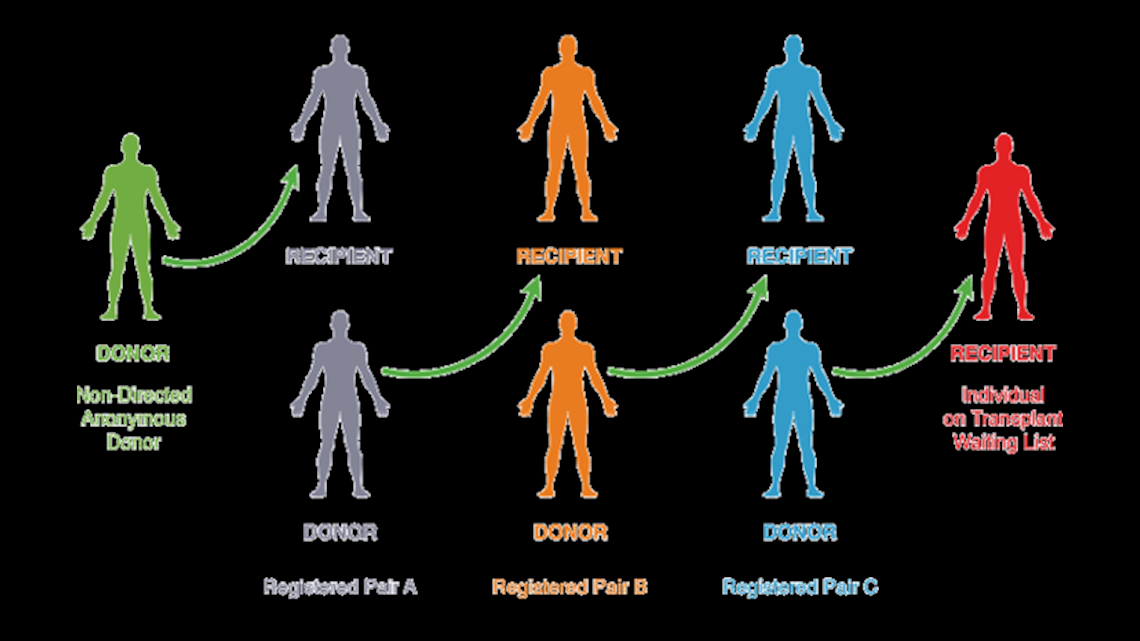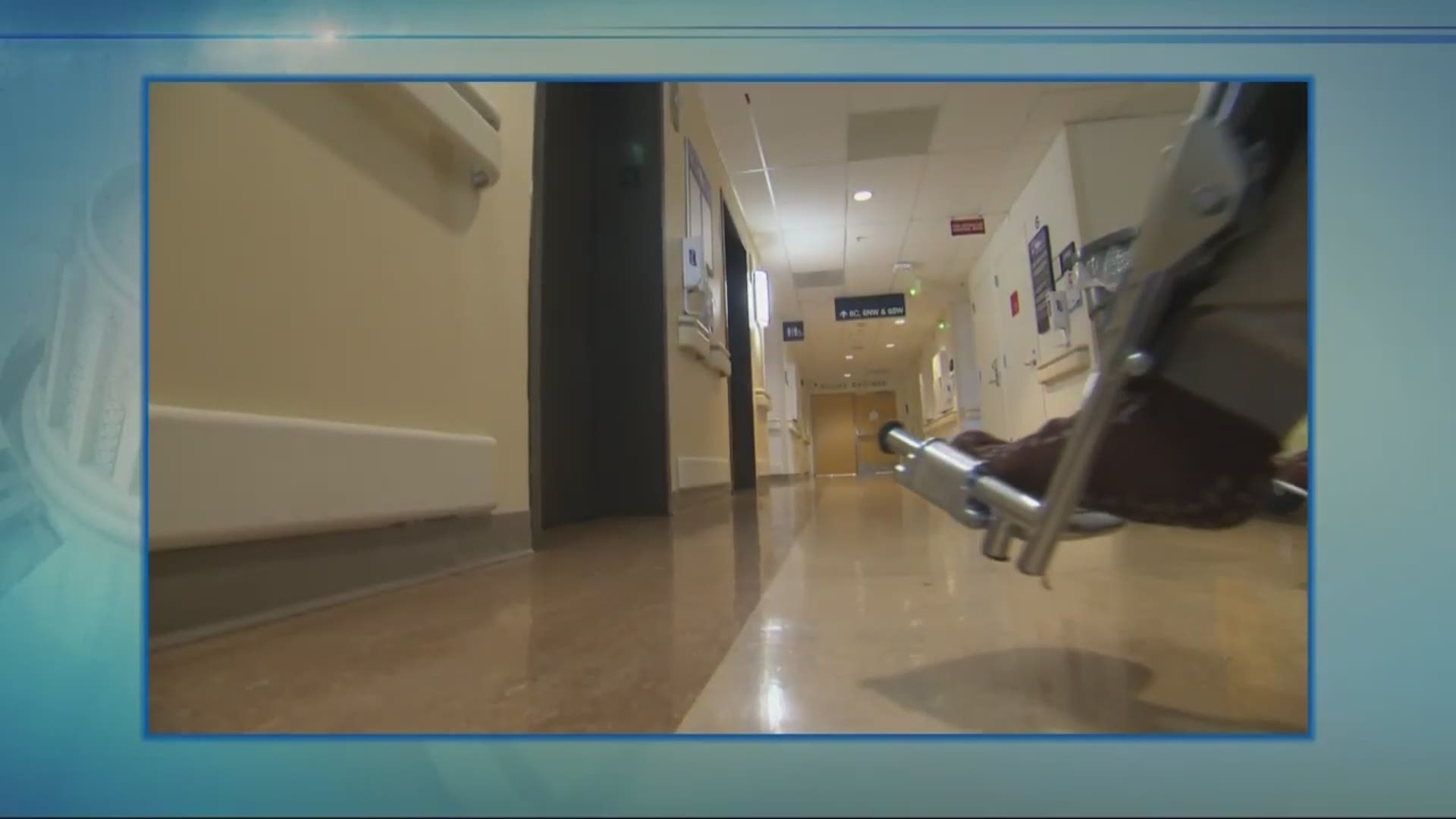PORTLAND, Ore. — There are five fewer people in the United States who need a kidney transplant thanks to an Oregon state representative who donated one of her kidneys to a complete stranger.
She hopes her experience will inspire others to also become living donors.
On October 16, Representative Tiffiny Mitchell, D-Astoria, underwent surgery to donate her kidney, and through something called a "paired exchange chain," her gift multiplied.
Mitchell had wanted to be a kidney donor for a long time, ever since a friend needed a kidney ten years ago. Her friend's mother turned out to be the better donor, but Mitchell knew she would one day help someone else.
"I thought if I was willing to help my friend, I realized there was someone else out there going through the same thing. Why wouldn't I want to help them? I'm just happy I was finally able to do it," said Mitchell.


The donation chain started with Mitchell, who donated her kidney to someone who needed it.
That person also had a living donor lined up, but who wasn't a match, and that donor was matched with another stranger who needed a kidney.
And the chain went on from donor to recipient, five times, until it ultimately ended with a transplant recipient back in the Northwest.
Mitchell partnered with the Oregon non-profit, Donate Life Northwest, as she went through the transplant process. The group's executive director, Leslie Brock, called Mitchell's kidney donation an incredible gift.
She said eighty percent of the 125,000 people in the U.S. on the transplant list are waiting for a kidney.
"There are only a very limited number of deceased donors who could provide a kidney, so the best way to lower the number on that list is through living donation. So when we met Tiffiny and watched her go through this process, it was an amazing experience for us," said Brock.
Mitchell said the transplant team did a good job preparing her ahead of time, but she said it's different for everyone.
"I think it was a fantastic experience overall, and one that you do wonder if you will ever be the same again. But here I am five weeks in, and I'm feeling like it never happened."
Mitchell and Brock met during the 2019 Oregon legislative session when they worked together on a bill to protect living donors. The bill passed unanimously and Governor Kate Brown signed it into law in June.
The legislation provides job security for people who are considering organ donation by including living donation as a procedure protected under the state's "Family and Medical Leave Act."
Additionally, the new law will prohibit insurers from increasing premiums and limiting a donor's access to health, life or long-term care insurance based solely on their status as a "living donor."
Mitchell didn't benefit from the new law. It takes effect in January of 2020.
However, she hopes it will encourage others to consider being a living donor.
She vows to push for even more protections for living donors.
While Oregon's Paid Family and Medical Leave Act protects a donor's job security, it doesn't ensure they will be paid during their time off for surgery and recovery.
She wants lawmakers to add organ donation to the items covered by the new law for paid time off.
"One of the biggest barriers for people to become living donors is the prospect of going a month without a paycheck. If we're able to get paid family medical leave for living organ donation, my hope is that will remove that barrier for a lot of people who might be considering this as an option," said Mitchell.
Brock's organization, Donate Life Northwest, also manages the state's organ donor registry. With more than 2.6 million Oregonians registered as organ, eye and tissue donors, Oregon is in the top five in the country for the number of registered donors.
"We have some very generous donors in the Pacific Northwest and we are very excited about that," said Brock.
She expressed the importance of individuals speaking with their loved ones about their organ donation wishes, even if they are already a registered donor.
She said it can also bring comfort.
"A lot of families who have had a loved one pass away and become a donor, find some solace, that even though it was a terrible tragedy, their loved one was able to save lives and heal people through their donations," said Brock.
Mitchell hopes one day to meet the recipient of her kidney. She's signed the required paperwork giving permission on her end. The person who received her kidney would also have to agree and sign a privacy release.
However, she says even if they never meet, she'll always be gratified she made the choice to give someone else the gift of life.
"I hoped to give someone their loved one back. That to me is immensely gratifying, regardless of if I ever get to meet them," she said.
For more information on how to donate:
Call Donate Life Northwest at 503-494-7888 or check their website.
Watch Straight Talk Saturday's at 4:30pm on KGW.
Or listen to the program now on the KGW Straight Talk podcast.


